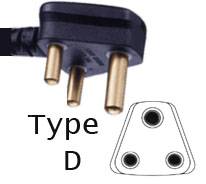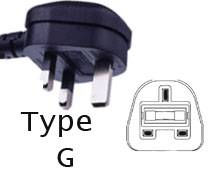Sri Lanka, located in South Asia, is an island nation known for its rich history, diverse landscapes, and vibrant culture. From the ancient ruins of Anuradhapura to the scenic tea plantations of Nuwara Eliya and the pristine beaches of Mirissa, Sri Lanka offers travelers a unique and immersive experience.
Ultimate Sri Lanka Travel Guide
Destinations
Best time to go
The best time to visit Sri Lanka depends on the region you plan to visit. The west and south coasts are ideal from December to March, while the east coast is best from April to September. However, Sri Lanka experiences two monsoon seasons, so be prepared for occasional rain showers throughout the year.
Average Temperature By Month
January: 28°C (82°F)
February: 28°C (82°F)
March: 29°C (84°F)
April: 30°C (86°F)
May: 30°C (86°F)
June: 29°C (84°F)
July: 29°C (84°F)
August: 29°C (84°F)
September: 29°C (84°F)
October: 29°C (84°F)
November: 29°C (84°F)
December: 28°C (82°F)
What To Expect
Time Zone:
Sri Lanka Standard Time (SLST), UTC+5:30.
Currency:
The official currency of Sri Lanka is the Sri Lankan Rupee (LKR). Credit cards are widely accepted in major cities and tourist areas, but it's advisable to carry cash for smaller establishments and rural areas.
Language:
Sinhala and Tamil are the official languages of Sri Lanka, but English is widely spoken, especially in tourist areas, hotels, and restaurants.
Airport:
Bandaranaike International Airport (CMB) near Colombo is the main international airport in Sri Lanka, serving as the primary entry point for international travelers.
How To Get Around
Public Transport: Sri Lanka has an extensive public transportation network, including buses and trains. Buses are the most common mode of transport for short and long distances, while trains offer scenic journeys through the countryside.
Tuk-tuks: Tuk-tuks are a popular and convenient mode of transport, especially for short trips within cities and towns. Make sure to negotiate fares before starting your journey.
Rental Cars: Renting a car or hiring a driver is a popular option for exploring Sri Lanka, offering flexibility and convenience, especially for visiting remote areas and attractions.
Domestic Flights: Domestic flights are available for traveling between major cities and regions, offering a convenient option for long-distance travel.
Average Temperature By Month:
January: 28°C (82°F)
February: 28°C (82°F)
March: 29°C (84°F)
April: 30°C (86°F)
May: 30°C (86°F)
June: 29°C (84°F)
July: 29°C (84°F)
August: 29°C (84°F)
September: 29°C (84°F)
October: 29°C (84°F)
November: 29°C (84°F)
December: 28°C (82°F)
Plugs:
Sri Lanka uses Type D, M, and G electrical plugs, with a standard voltage of 230V and a frequency of 50Hz.
VPN:
Using a VPN is advisable for secure internet browsing, especially when accessing public Wi-Fi networks.
Safety:
Sri Lanka is generally safe for travelers, but it's essential to exercise standard precautions, such as safeguarding belongings and staying aware of your surroundings, especially in crowded areas and tourist spots.
Credit Cards and Banks
Credit Cards:
Credit card acceptance in Sri Lanka is widespread, especially in urban areas, tourist destinations, hotels, restaurants, and larger shops. Visa and MasterCard are the most commonly accepted cards, followed by American Express and Diners Club. Contactless payments, including Apple Pay and Google Pay, are also becoming increasingly common.
Debit Cards:
Debit cards are widely used in Sri Lanka for everyday transactions, including shopping and ATM withdrawals. Most banks issue debit cards that can be used domestically and internationally. Make sure to inform your bank of your travel plans to avoid any issues with card usage abroad.
ATMs:
ATMs are available in major cities, towns, and tourist areas throughout Sri Lanka, allowing you to withdraw Sri Lankan Rupees (LKR). Most ATMs accept international cards, but it’s advisable to use ATMs located inside banks or major shopping centers for security. Some ATMs may have withdrawal limits, so plan accordingly.
Currency Exchange:
The official currency of Sri Lanka is the Sri Lankan Rupee (LKR). It’s recommended to exchange your currency to Sri Lankan Rupees upon arrival in Sri Lanka. You can exchange major foreign currencies at banks, currency exchange booths, and some hotels. US dollars, euros, and British pounds are widely accepted for exchange.
Banks:
Major banks in Sri Lanka include:
- Commercial Bank of Ceylon: One of the largest banks in Sri Lanka, Commercial Bank offers a wide range of banking services including savings accounts, loans, and foreign exchange.
- People’s Bank: Another prominent bank in Sri Lanka, People’s Bank provides various banking products and services for individuals and businesses.
Traveler’s Checks:
Traveler’s checks are becoming less common worldwide, and their usage is limited in Sri Lanka. It’s recommended to carry cash or use credit/debit cards for transactions. However, some banks may still offer services for cashing traveler’s checks, albeit with a fee.
Tips for Banking in Sri Lanka:
- Notify your bank before traveling to Sri Lanka to inform them of your travel plans and avoid any issues with card usage abroad.
- Keep your PIN and card information secure, and be cautious when using ATMs, especially in secluded areas or at night.
- Familiarize yourself with the current exchange rate to ensure fair transactions when exchanging currency.
- Carry small denominations of Sri Lankan Rupees for smaller purchases, as change may be limited.
By understanding the banking system in Sri Lanka, you can ensure a smooth and hassle-free financial experience during your travels in the country.
Locations
Sri Lanka
TRAVEL FACTS
US State Dept Travel Advisory
The US Department of State currently recommends US citizens exercise increased caution in Sri Lanka due to civil unrest, and terrorism.
https://travel.state.gov/content/travel/en/traveladvisories/traveladvisories.html
Passport/Visa Requirements
For the latest passport and visa requirements for this country, please consult the U.S. State Department’s “Learn About Your Destination” search tool, available through the link below.
US Embassy/Consulate
[94] (11) 249-8500; US Embassy Colombo, 210 Galle Road, Colombo 03, Sri Lanka; colomboacs@state.gov; https://lk.usembassy.gov/
LGBTQIA+ Travelers
Telephone Code
94
Local Emergency Phone
119 Police
Vaccinations
The CDC and WHO recommend the following vaccinations for Sri Lanka: hepatitis A, hepatitis B, typhoid, yellow fever, Japanese encephalitis, rabies, meningitis, polio, measles, mumps and rubella (MMR), Tdap (tetanus, diphtheria and pertussis), chickenpox, shingles, pneumonia, COVID-19, and influenza.
Climate
Tropical monsoon; northeast monsoon (December to March); southwest monsoon (June to October)
Currency (Code)
Sri Lankan rupees (LKR)
Electricity/Voltage/Plug Type(s)
230 V / 50 Hz / plug types(s): D, G


Major Languages
Sinhala, Tamil, English
Major Religions
Buddhist, Hindu, Muslim, Roman Catholic, other Christian
Time Difference
UTC+5.5 (10.5 hours ahead of Washington, DC, during Standard Time)
Potable Water
Opt for bottled water
International Driving Permit
Suggested
Road Driving Side
Left
Tourist Destinations
Sigiriya Rock Fort; Yala National Park; Galle Fort; Adam’s Peak; Temple of the Tooth; Arugam Bay; Pinnawala Elephant Orphanage; Gal Vihara
Major Sports
Volleyball, cricket, rugby, athletics (track and field), soccer, netball, tennis
Cultural Practices
It is common practice to remove one’s shoes before entering someone’s home. Sri Lankans generally socialize before a meal. It is best not to arrive to a Sri Lankan’s house feeling hungry as you may not eat until a few hours later. Try to accept any refreshments offered, as refusing them is considered impolite.
Tipping Guidelines
Tipping 10% is customary in restaurants; if a service charge is included, leave a few extra rupees. Tip bar staff 100 rupees as you leave. Conventionally, 50-100 rupees is a good tip for hotel staff, including porters, room cleaners, and room service personnel. Tip taxi drivers 10% of the fare.
Souvenirs
Carved masks, precious gems, teas, spices
Traditional Cuisine
Kottu roti — roti (a round flatbread) is placed on a grill and chopped and combined with additional ingredients including spices, vegetables, eggs, cheese or meat
Please visit the following links to find further information about your desired destination.
World Health Organization (WHO) – To learn what vaccines and health precautions to take while visiting your destination.
US State Dept Travel Information – Overall information about foreign travel for US citizens.
To obtain an international driving permit (IDP). Only two organizations in the US issue IDPs:
American Automobile Association (AAA) and American Automobile Touring Alliance (AATA)
How to get help in an emergency?
Contact the nearest US embassy or consulate, or call one of these numbers:
from the US or Canada – 1-888-407-4747 or from Overseas – +1 202-501-4444
Central Intelligence Agency.
The World Factbook.
/the-world-factbook
(May 8, 2024)



